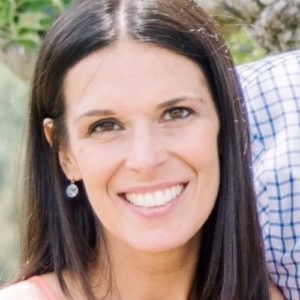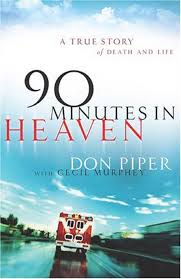Michaela Chatterjee A pleasant family vacation ended abruptly with an unpleasant outcome for seventeen-year-old Michaela (Roser) Chatterjee. In the blink of an eye, a relaxing drive back home turned into a horrific car accident, followed by the chaotic scramble of a life flight via helicopter to emergency surgery. Another driver had panicked at the sight of oncoming traffic while trying to pass on a hill and smashed into the family vehicle, forcing them under the trailer of an eighteen wheeler. Three medical evacuation helicopters and five ambulances were called to the scene. Michaela’s injuries were by far the most serious. Her facial wounds looked particularly gruesome. A deep laceration extended across her forehead and ripped into her right eyelid, exposing two inches of skull and her eyeball. Her bicep was completely severed when her left arm smashed through the rear windshield. As a result, Michaela had gone into shock. The force of impact had been so great that she suffered a diffuse axonal injury to her brain, meaning her brain literally sheared and twisted inside her cranium, creating a blood clot. Fortunately for Michaela, the accident occurred only two miles from the personal residence of emergency room physician Scott Magley. He arrived at the scene and began administering first aid. Michaela flat lined on the flight to the hospital despite Dr. Magley’s best efforts to save her. Michaela was so badly injured that Dr. Magley was able to intubate her without anesthesia. Due to the severity of her brain injury, she remained … [Read more...]
Atheism and the near death experience
Those familiar with my work know that I'm fascinated by certain aspects of the near death experience. However, all NDEs are not created equal. Some reveal more valuable information that other NDEs. And some accounts are fraudulent, of course. No matter what information a specific account may contain, my atheist friends refuse to believe them -- they simply can't afford to believe any of them could be true, because the only thing that could possibly continue to exist after the death of these material bodies is an immortal soul. Instead, the atheist will vehemently protest that every NDE is nothing more than a pleasant hallucination produced by the human brain in order to ease the transition from life into death. According to them, the NDE is evolution's contribution to death to make the experience slightly less unpleasant. But this creates a problem for NDE claims where the person describes a totally miserable experience in hell -- what are we to make of those particular "anecdotes" of dreadful hallucinations? If NDEs are nothing but hallucinations, why would some be pleasant and others unpleasant? Perhaps it is possible not every NDE account is a hallucination, or a lie. In fact, there is a category of NDE phenomena that offers clear and confirmable evidence that the physical brain and spiritual mind can literally separate, called corroborated veridical NDE accounts. This phenomena suggests that the mind can actually learn accurate information apart from the physical brain -- information that can later be independently investigated and either … [Read more...]
Atheism and life after death
Why are atheists so adamantly opposed to the idea that consciousness could possibly survive physical death of the human brain? For several years now, I've conducted personal research mostly to satisfy my own curiosity about what might happen when we die. I've read dozens, if not hundreds of articles describing various scientific studies of the near death experience to learn what doctors and scientists think they have discovered about this phenomena. I've personally interviewed people making NDE claims. I seen enough and read enough to believe that the mind and brain separate at death. The spiritual mind survives; the physical brain does not. Dr. Bruce Greyson established what is now called the Greyson NDE scale of 16 specific attributes many alleged NDE claims share in common. These attributes include seeing a bright light at the end of a tunnel, reuniting with dead relatives, the sensation of leaving their physical body, etc. My atheist friends have vehemently argued that these events are hallucinogenic in nature, originating from chemicals produced by the dying brain to make the transition to death more pleasant and less traumatic. However, the typical atheist's arguments are fatally flawed, for two reasons. First of all, not every NDE is a pleasant or euphoric experience. Some are quite terrifying. After learning about his experience from the television program I Survived: Beyond and Back, the reason I sought to interview Matthew Botsford in particular was because he was by every account an innocent bystander accidentally gunned down in a drive-by shooting … [Read more...]
Are NDE accounts all full of Malarkey?
Critics of my nonfiction work are well aware that I believe that some NDE accounts may hold key evidence which could settle for good the question of whether our consciousness ceases to exist the same moment our physical brain/body dies. That answer would seem to be "no." Corroborated veridical NDE perceptions, refers to new memories created by the individual in question while they were in a documented medical state of emergency which might be most accurately described as "somewhat" near death. To be honest, I'm not really interested in generic claims of an NDE or knowing every story behind every claim. In fact, there is only one aspect of any potential NDE claim that actually intrigues me at this point. I've seen and heard enough of them about heaven to believe in the possibility that heaven exists. I've also seen and heard enough NDEs that claimed to have occurred in hell to accept that possibility as well. The fact that NDEs can result in either heaven or hell suggests that the experience is not dismissible as a euphoric hallucination caused by chemical reactions in a dying brain. It doesn't really matter to me about the "degree of death" involved, meaning whether or not a medical professional had technically declared the individual in question to be dead at some point, assuming they recovered after recovery became unexpected. My foremost interest is knowing whether or not this person claims to have learned new information while incapacitated, and whether that evidence can be investigated and corroborated or debunked by an independent third party. If … [Read more...]



